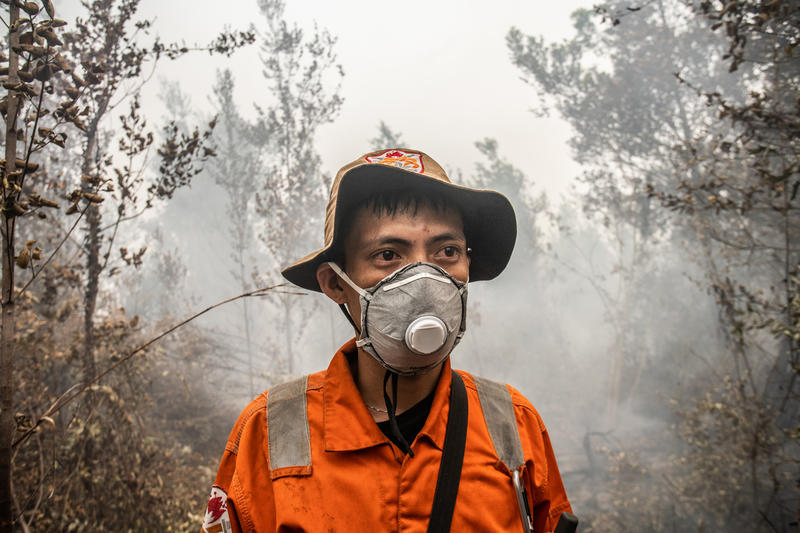Greenpeace calls on ASEAN states to enact domestic transboundary haze laws in their respective countries.
KUALA LUMPUR – Governments in Southeast Asia must enact a Transboundary Haze Pollution Act (THPA) as a concrete first step following the many promises to stop haze that began with the 2002 ASEAN Agreement on Transboundary Haze Pollution, ratified in Kuala Lumpur, of which Malaysia was its the first signatory.
ASEAN regional diplomatic cooperation should not be an excuse used to delay enforceable laws such as a THPA, which was tabled in Malaysia in 2019 and scrapped in August 2020 despite several Malaysian-owned companies being linked to forest fires in Indonesia.
Diplomatic cooperation among governments in Southeast Asia can coexist with action-oriented laws to ensure accountability and strengthen government’s strategies in dealing with the long-term haze issue.
Heng Kiah Chun, Regional Campaign Strategist, Greenpeace Southeast Asia:
“Enacting a domestic Transboundary Haze Act is necessary to act as a deterrent, especially as there are bad apples in the industry. It can provide legal grounds for each country to institutionalise checks and balances to ensure their own companies operate responsibly.”
In particular, Greenpeace demands ASEAN states to:
- Develop a regional legal framework to hold corporate entities accountable for domestic forest fires due to peatland clearance and agricultural residue burning.
- Mandate all companies known for clearing out forests to publicly disclose and publish concession maps to be shared across all ASEAN member states to improve transparency in their supply chains.
- Agree on a standardised air quality indicator to be used in all ASEAN member states to monitor and track air pollution based on a common methodology and act accordingly.

We’re calling for stronger political will from our ministers to recognise that clean, haze-free air is a basic human right. Join us in pushing for a Transboundary Haze Pollution Act!
